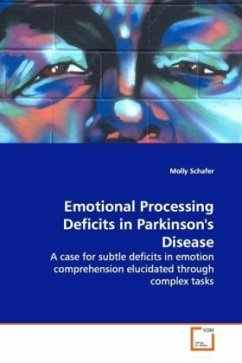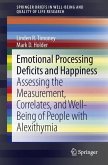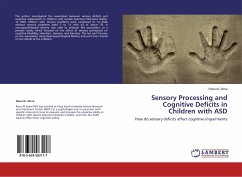Parkinson's disease (PD) is known to cause
detrimental effects to motor function and cognition
and in turn impact emotion expression. There is
conflicting evidence as to whether PD also affects
emotion comprehension. This book investigated the
effects of PD on emotion comprehension, social
cognition and autobiographical memory. Sixteen
patients with PD and controls were tested on a range
of emotion recognition measures including facial
expressions, prosody, written vignettes, imagery,
pictures of emotion, social cognition, and an
autobiographical memory task. The PD group did not
show pervasive deficits in emotion recognition
overall. Deficits were demonstrated in recognising
fearful, angry and neutral tones, facial expressions
of disgust, and some aspects of social cognition.
The evidence suggested that PD is thought to cause
subtle deficits in emotion comprehension which are
only elucidated through complex tasks. The effects
of PD on complex processing also impact social
cognition, which relies on complex emotion
recognition. Findings also support a role for the
basal ganglia and fronto-striatal connections in
emotion comprehension.
detrimental effects to motor function and cognition
and in turn impact emotion expression. There is
conflicting evidence as to whether PD also affects
emotion comprehension. This book investigated the
effects of PD on emotion comprehension, social
cognition and autobiographical memory. Sixteen
patients with PD and controls were tested on a range
of emotion recognition measures including facial
expressions, prosody, written vignettes, imagery,
pictures of emotion, social cognition, and an
autobiographical memory task. The PD group did not
show pervasive deficits in emotion recognition
overall. Deficits were demonstrated in recognising
fearful, angry and neutral tones, facial expressions
of disgust, and some aspects of social cognition.
The evidence suggested that PD is thought to cause
subtle deficits in emotion comprehension which are
only elucidated through complex tasks. The effects
of PD on complex processing also impact social
cognition, which relies on complex emotion
recognition. Findings also support a role for the
basal ganglia and fronto-striatal connections in
emotion comprehension.








